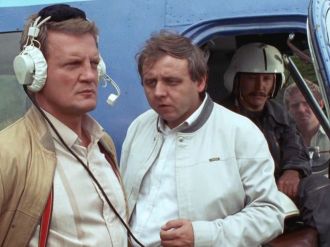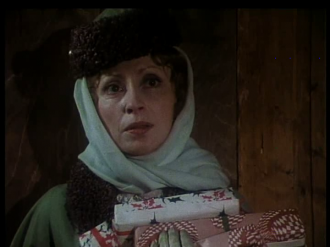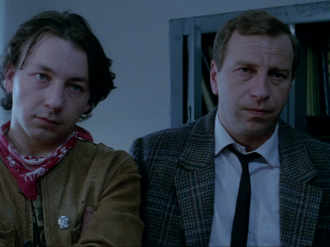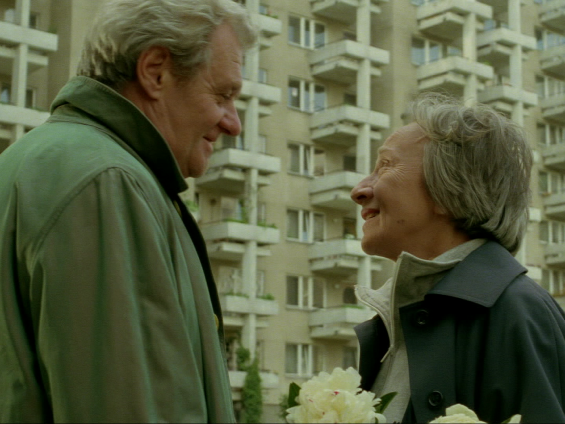- Duration:
53’
- Genre:
DRAMA
- Resolution: HD
- Year: 1988
This original series illustrating the Ten Commandments has firmly
established Kieślowski’s international reputation. Each of the presented
stories is linked to the theme of a particular commandment. Because of its
form, all viewers are deeply moved by these movies, regardless of their views
or religious beliefs. Asked on numerous occasions why he had chosen such a hard
subject, the director replied curtly: “It’s worthwhile to be reminded of these
ten very well written sentences. There needs to be a point of reference, a
definitive criterion (...)”. The series won numerous awards at film festivals
and is one of the most recognizable Polish productions.
An unexpected meeting of two women: Elżbieta, a Jew of Polish origin living
in the USA, studying the stories of the people that survived the Holocaust and
an elderly ethics professor. They had met a long time ago, but only now Zofia
recognizes her as the girl she refused to help during the Nazi occupation to save the resistance movement, put to the risk of exposure. The reason for
her refusal remembered by Elżbieta was that she could not bring herself to lie
to Him she believes in. Zofia has been living with a sense of guilt for the
death of an innocent child, and Elżbieta – with the sense of rejection for
decades. The film, probably inspired by Hanna Krall (‘I sometimes told
Kieślowski about the girl I know very well – the one from The Decalogue,
Eight’) is one of the first stories referring to the Holocaust, as well as to
the Polish and Jews relations in the Polish cinematography. The director
indicates the guilt and an unsolvable dilemma at the same time, eventually
standing by the child’s side. The story from The Decalogue, Two, told by Zofia
in the auditorium and its conclusion (‘the child’s life is the most important
factor’) recalls the memories of Elżbieta (and is followed by a look of an
invisible student with an already familiar face). Kieślowski, however, does not
lock himself in the past but shows the solution. It consists of revealing
hurting lies, finding the truth about the reasons for actions and forgiveness
without which the future is going to be bitter. In the eighth film, for the first
time since The Decalogue, One poses the question regarding God: in the night
conversation of the two women, His name known from the Old and the New
Testaments is recalled.





